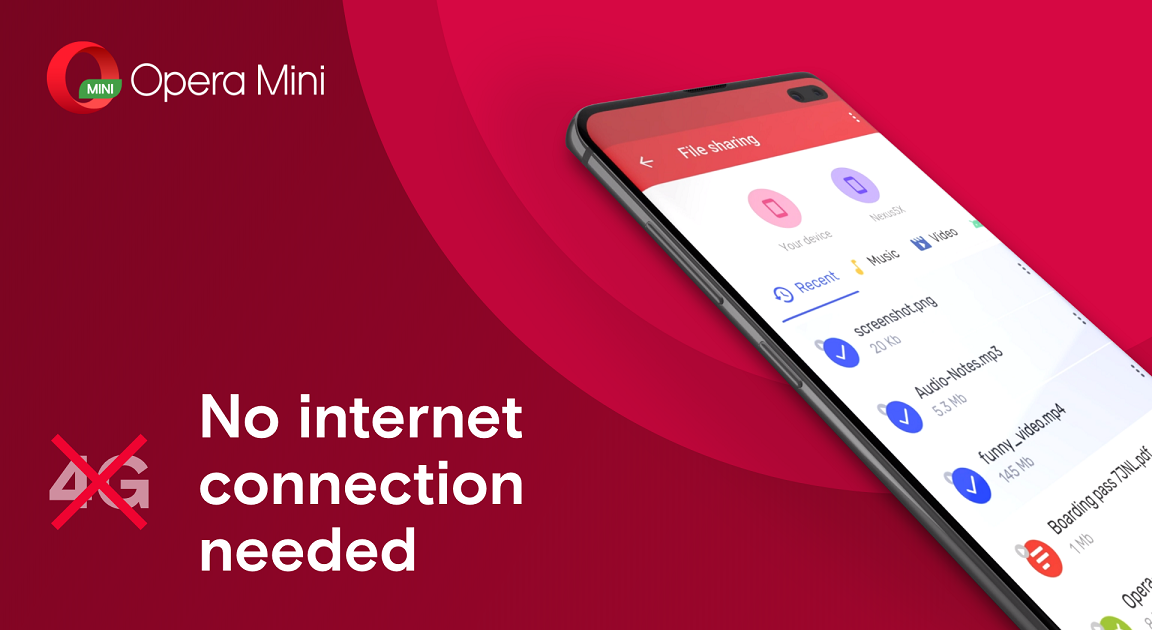Business
Opera Mini Ends Free Data Plan
Kenyans using Opera Mini have been hard-hit after Opera stopped its free data campaign, which allowed its consumers of limited means to enjoy free data bundles to access the internet.

Opera Mini Browser has stopped its free data plans that Kenyans have been enjoying since 2020.
The firm blames the local authorities’ decision, including the Betting Control and Licensing Board, to stop offensive advertising on Speed Dials (bookmarks on the start page) within browsers.
“Unfortunately, for now, we have had to stop our much-loved Free Data Campaigns in Kenya for our 13.5 million local Opera users. We had to put a hold on investments and free internet access in Kenya, but we are hoping for a solution so that we can once again provide free data to you, our valued customers in Kenya,” the firm said in a statement.
Previously, campaigns run by Opera offered up to 1.5GB of free data monthly, a move the firm said significantly enhanced digital inclusion across various demographics.
“The Betting Control and Licensing Board (BCLB) decision means over 13 million Kenyans will not get 50MB of free data every day. The users who benefited from them now face barriers to accessing the web,” said the firm.
”Before the regulatory changes, Opera shared plans for an extensive investment for the upcoming year, meeting or even exceeding the previous year’s amount spent on Free Data campaigns in Kenya. However, the BCLB’s decision has placed these plans on indefinite hold, creating uncertainty about the future of these campaigns.”
Free data campaigns have been a key aspect of Opera’s Africa First strategy to attract as many users to use their services while partnering with other SPs.
Opera regularly partners with local telcos to coordinate free data campaigns. Opera has already facilitated for nearly 40 million people across five countries to benefit from up to 3 GB of free browsing each month.
According to StatCounter, Opera has over 13 million users in Kenya, accounting for almost 50 per cent of the mobile market share in February 2024, splitting the market with Google’s Chrome. In 2023 alone, the company provided over four million GB of data for free valued at Sh1.6 billion as part of its campaign to enhance digital inclusion in the country.
Kenya’s new data protection regulations came into effect in 2022, governing what businesses inside and outside the country can do with information about citizens. The law has far-reaching implications for how companies and how they process data.
For instance, it is now unlawful to collect, process or disclose a data subject’s (an individual person) information without their permission or sell any personal data without their express consent. It also stipulates that if you process people’s data, you must be registered with the office of the Data Commissioner.
BCLB order
In February 2024, the Betting Control and Licensing Board (BCLB) initiated the enforcement of a High Court order prohibiting all gaming operators from utilizing the speed dial feature on internet browsers, primarily provided by the Opera Mini Browser and Google.
This action marked a victory for the Consumer Federation of Kenya (COFEK) and consumers following a petition filed by the consumer lobby.
The speed dial feature in Opera is a function that allows a user to have favorite websites on a start page, making it fast and easy to access them. It also allows one to create folders and group similar websites together.
COFEK raised concerns in their petition, alleging that betting firms were exploiting the feature to target Kenyan internet users indiscriminately, irrespective of age.
Affected gaming companies include Betika, OdiBets Kenya, Sportpesa, Peteta, and 1XBET Kenya, among others.
Cofek had initially written to the BCLB demanding for action that such licensed firms be removed from the speed dial platform as it was hurting minors and forcing many unsuspecting children to be addicted to gambling and betting.
COFEK expressed in a letter to BCLB, “Based on our research and consultations with line experts, we hereby confirm that browser providers, such as Opera, have introduced a “speed dial” feature, specifically curated for the Kenyan market. This offending feature, sponsored by betting firms (your licensees), ensures these betting services are prominently displayed, regardless of the user’s age, religion and other diversities.”
The speed dial feature provides a convenient way to access frequently visited websites. However, and as a result of this, it compromises internet safety practices by exposing minors who cannot avoid clicking on suspicious links or downloading unknown files from these sites.
COFEK emphasized that the continuous display of betting advertisements posed a significant risk to millions of underage citizens who could access smart devices intermittently, with or without permission from parents or guardians.
For example, COFEK pointed out that a browser like Opera Mini had introduced a speed dial feature tailored for Kenya, displaying five to seven shortcuts to leading betting firms on any given day.
BCLB acknowledges that gaming operators adopted the speed dial feature, resulting in the prominent display of betting services without considering the age, vulnerability, and other diversities of internet users.
The Betting Control and Licensing Board is the regulatory agency responsible for overseeing the operations of all betting firms in Kenya.
Kenya Insights allows guest blogging, if you want to be published on Kenya’s most authoritative and accurate blog, have an expose, news TIPS, story angles, human interest stories, drop us an email on [email protected] or via Telegram
-

 Business4 days ago
Business4 days agoCooking Fuel Firm Koko Collapses After Govt Blocks Sh23bn Carbon Deal
-

 Business3 days ago
Business3 days agoABSA BANK IN CRISIS: How Internal Rot and Client Betrayals Have Exposed Kenya’s Banking Giant
-

 Politics2 weeks ago
Politics2 weeks agoYour Excellency! How Ida’s New Job Title From Ruto’s Envoy Job Is Likely to Impact Luo Politics Post Raila
-

 Business2 weeks ago
Business2 weeks agoMinnesota Fraud, Rice Saga, Medical Equipment Deal: Why BBS Mall Owner Abdiweli Hassan is Becoming The Face of Controversial Somali Businessman in Nairobi
-

 Americas3 days ago
Americas3 days agoEpstein Files: Bill Clinton and George Bush Accused Of Raping A Boy In A Yacht Of ‘Ritualistic Sacrifice’
-

 News2 weeks ago
News2 weeks agoKenya Stares At Health Catastrophe As US Abandons WHO, Threatens Billions In Disease Fighting Programmes
-

 News2 weeks ago
News2 weeks agoDCI Probes Meridian Equator Hospital After Botched Procedure That Killed a Lawyer
-

 Investigations1 week ago
Investigations1 week agoPaul Ndung’u Sues SportPesa for Sh348 Million in UK Court, Accuses Safaricom Boss of Sh2.3 Billion Conspiracy















